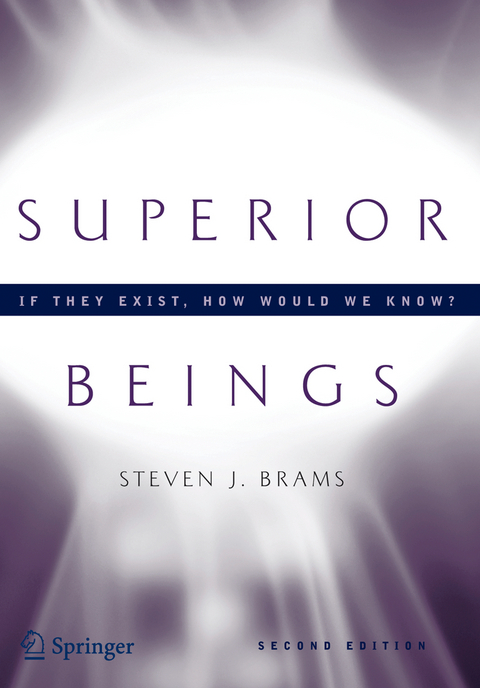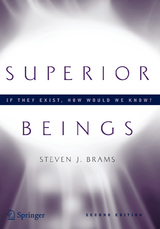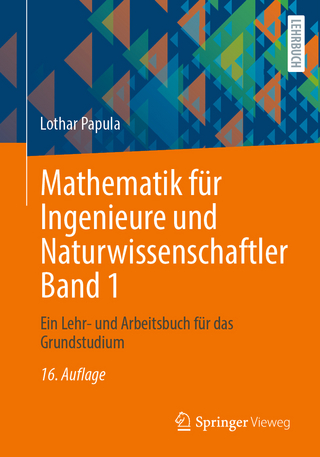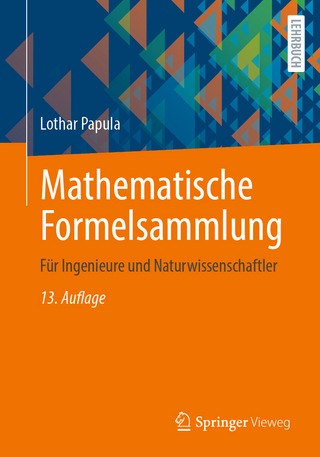Superior Beings. If They Exist, How Would We Know?
Game-Theoretic Implications of Omnipotence, Omniscience, Immortality, and Incomprehensibility
Seiten
2006
|
2nd ed. 2007
Springer-Verlag New York Inc.
978-0-387-48065-7 (ISBN)
Springer-Verlag New York Inc.
978-0-387-48065-7 (ISBN)
This book examines theology and the idea of a superior being in the context of game theory. The author shows how game theory can help breathe life into questions and he clarifies the structure of our thought about an ultimate reality.
The same is true of applications of game theory to history, philosophy religion, and the other humanities. In particular, I know of no attempts to apply game theory to the kinds of p- losophy-of-religion and theology questions that I explored in Superior Beings, By contrast; the nexus between science and religion has been thoroughly analyzed using other methods of inquiry as evidenced by Charles L. Harper Jr (ed. ), Spiritual Information: 100 Perspectives on Science and Religion (West Conshohocken, PA: Templeton Foundation Press, 2006), a huge collection put together in honor of Sir John Templeton's ninetieth birthday Sir John, through the Templeton Foundation, is the primary propo nent and the major benefactor of studies in science and religion today How science and religion are (or are not) connected is, of course, an old subject. It is also a controversial one, extending at least from Galileo's trial in 1633 to the teaching of evolution today. While game theory is a mathematical theory, Superior Beings is emphatically not a scientific work, wherein a theory is tested. Rather, it is an attempt to interpret and explain important philo sophical, religious, and theological questions in terms of the rational choices of ordinary human beings, who are assumed to play games with a superior being. The game theory I use is nonstandard.
The same is true of applications of game theory to history, philosophy religion, and the other humanities. In particular, I know of no attempts to apply game theory to the kinds of p- losophy-of-religion and theology questions that I explored in Superior Beings, By contrast; the nexus between science and religion has been thoroughly analyzed using other methods of inquiry as evidenced by Charles L. Harper Jr (ed. ), Spiritual Information: 100 Perspectives on Science and Religion (West Conshohocken, PA: Templeton Foundation Press, 2006), a huge collection put together in honor of Sir John Templeton's ninetieth birthday Sir John, through the Templeton Foundation, is the primary propo nent and the major benefactor of studies in science and religion today How science and religion are (or are not) connected is, of course, an old subject. It is also a controversial one, extending at least from Galileo's trial in 1633 to the teaching of evolution today. While game theory is a mathematical theory, Superior Beings is emphatically not a scientific work, wherein a theory is tested. Rather, it is an attempt to interpret and explain important philo sophical, religious, and theological questions in terms of the rational choices of ordinary human beings, who are assumed to play games with a superior being. The game theory I use is nonstandard.
The Rationality of Belief in a Superior Being.- Omniscience and Partial Omniscience.- The Paradox of Omniscience and the Theory of Moves.- Omnipotence: Moving and Staying Power.- Immortality and Incomprehensibility.- Superior Beings: They May Be Undecidable.
| Zusatzinfo | 32 Illustrations, black and white; XXIV, 202 p. 32 illus. |
|---|---|
| Verlagsort | New York, NY |
| Sprache | englisch |
| Maße | 155 x 235 mm |
| Themenwelt | Mathematik / Informatik ► Mathematik ► Angewandte Mathematik |
| Mathematik / Informatik ► Mathematik ► Finanz- / Wirtschaftsmathematik | |
| Mathematik / Informatik ► Mathematik ► Wahrscheinlichkeit / Kombinatorik | |
| Wirtschaft ► Allgemeines / Lexika | |
| Wirtschaft ► Volkswirtschaftslehre | |
| ISBN-10 | 0-387-48065-X / 038748065X |
| ISBN-13 | 978-0-387-48065-7 / 9780387480657 |
| Zustand | Neuware |
| Informationen gemäß Produktsicherheitsverordnung (GPSR) | |
| Haben Sie eine Frage zum Produkt? |
Mehr entdecken
aus dem Bereich
aus dem Bereich
Buch | Softcover (2024)
Springer Vieweg (Verlag)
37,99 €
Buch | Softcover (2024)
Springer Vieweg (Verlag)
44,99 €
für Ingenieure und Naturwissenschaftler
Buch | Softcover (2024)
Springer Vieweg (Verlag)
34,99 €




